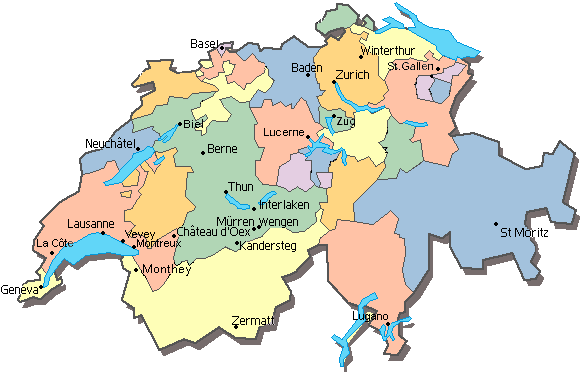
St Ursula's Church
Berne, Switzerland
A Church of the Anglican Communion, welcoming all who seek the Lord Jesus Christ

| St Ursula's Church
| ||||||||||||||||||
| News | Contacts | Who We Are | Where We Are | Magazine | Pictures | Charities | Rotas | Weddings | Site Map | ||||||||||
The Church of Saint Ursula in Berne has a long tradition of ministry to all English speaking people in the Canton of Berne, Switzerland, and beyond. It also provides a home for Christians from many different denominations and cultural backgrounds. It is one of the chaplancies of the Swiss archdeaconry of the Anglican Diocese in Europe.
St Ursula's is a strongly ecumenical church, and this is reflected in its membership. St Ursula's is also a member of the Association of Churches in Berne (AKiB).
Worship is an important priority for us. Around 60 people come to our Eucharist service at 10.00 on Sunday mornings. Our services follow the Church of England's Common Worship Order One (2000). The service on the second Sunday of the month aims to be for all ages. The service on the fourth Sunday is normally a sung Eucharist. See the website for details of the next few weeks.
Outreach, prayer and pastoral care form other important parts of our ministry. Members also meet during the week for fellowship, study, prayer and support in housegroups. In addition, we support the work of Christ in the world through our charity and mission team.
There is a Junior Church and a Youth Group.
St Ursula's was built in 1906 on a site that had been given to the community by the British-Berne Land Co. An American lady, Mrs Castleman from St Louis, provided the money for the building as a thank offering for the near miraculous recovery of her daughter, Ursula, who was treated at the clinic of the famous Professor Kocher. Hence the dedication of the church. (The history of Anglican worship in Berne goes back to the early 19th century.)
The hall and the house were added in 1959, and enlarged (thanks to a windfall grant from the Canton of Berne) in 1992. An English missionary society, the USPG, helped to support the church from its earliest days. Since 1977, however, the chaplaincy has been fully self-supporting, relying solely on its members and well-wishers for financial support.
We also have services and Bible studies in Thun.
What are Anglicans? | 
|
The window behind the altar also commemorates St Etheldreda (or Audrey), another British princess, who founded the monastery at Ely in the seventh century and became its first abbess.
The Diocese in Europe | 
|
English churches and congregations have been established on the European Continent since before the Reformation. The number of these grew so strongly that in 1633 congregations of the Church of England in all foreign countries were placed under the jurisdiction of the Bishop of London (At that time London was the chief port of England). Anglican Dioceses and then Provinces were later formed in all parts of the world outside the United Kingdom. They grew into what is now known as the Anglican Communion.
The Diocese of Gibraltar was founded in 1842 and took over the pastoral care of the chaplaincies and congregations in Southern Europe and Turkey. In 1883 the Bishop of London appointed a suffragan bishop, who later was given the title of Bishop of Fulham, to look after the chaplaincies in North and Central Europe.
Since 1970 all of continental Europe has been in the care of one Bishop, the Bishop of Fulham and Gibraltar.
In July 1980 a single Diocese was formed with the title The Diocese of Gibraltar in Europe (Diocese in Europe for short).
It became the 44th Diocese of the Church of England.
The Bishop of the Diocese is the Rt Revd Robert Innes.
He is assisted by a Suffragan Bishop and Auxiliary Bishops.
The Episcopal Church of the United States of America has also established six churches in Europe, since 1971 placed under the jurisdiction of the Bishop of the Churches of the American Convocation in Europe.
Other Anglican Churches on mainland Europe are the Spanish Reformed Episcopal Church and the Lusitanian Church in Portugal.
The bishops of all those churches work together in COABICE, the College of Anglican Bishops in Continental Europe.
The Anglican Communion maintains friendly relations with all the major Christian Churches on the European Continent, and is in full communion with the Old Catholic Church [Union of Utrecht]. In 1991, the Meissen declaration led to a much closer degree of fellowship with the German Lutheran church, and in 1996 the Porvoo agreement resulted in links and intercommunion with several Nordic and Baltic Lutheran Churches.
St Ursula's is one of the chaplancies of the Swiss archdeaconry of the Diocese in Europe.

Other Anglican churches are in Zurich, Basle, Neuchâtel, Biel, Geneva, La Côte, Lausanne, Vevey, Montreux and Lugano. And there is an American Episcopal Church in Geneva, too.)